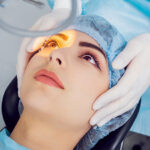Menopause marks the natural transition when menstrual cycles permanently cease, typically signaling the end of reproductive years. This stage is confirmed by no menstrual periods for twelve consecutive months, and the average age of occurrence is 51. The years leading up to menopause, called perimenopause, involve varying shifts in hormone levels and introduce a series of physical, cognitive, and emotional changes. Here are several things to expect throughout the menopause transition:
Experiencing Vasomotor Symptoms
Vasomotor symptoms are a frequent experience as menopause approaches; they affect approximately 80% of middle-aged women. These are primarily connected to how the body regulates temperature, with fluctuating hormone levels acting as a trigger. A key manifestation is the hot flash, which refers to a sudden sensation of heat spreading across the chest, neck, and face, sometimes producing redness and perspiration. If these episodes arise during sleep, night sweats may result and interrupt rest.
Symptoms differ in frequency, intensity, and duration among individuals. Some encounter them briefly, while others have them for several years. An OBGYN can recommend lifestyle changes to help with these symptoms; this includes maintaining a cool sleeping environment and avoiding personal triggers, like spicy foods or alcohol.
Tracking Physical Changes
Hormonal adjustments during menopause influence several body systems, leading to a broad range of shifts. Sleep patterns may become less predictable, sometimes due to night sweats. Some people notice their skin feels drier or thinner. They may observe alterations in hair texture or thickness. There is often a noticeable redistribution of body fat, frequently around the abdomen. Joint and muscle discomfort is also more apparent during this transition. A helpful way to track these physical changes involves regular self-assessment and open dialogue with healthcare professionals. They support early identification of developments needing further attention.
Navigating the Menopausal Transition
Adopting key lifestyle practices is fundamental to navigating menopause. Regular physical activity, including both aerobic and strength training exercises, supports overall physical health and can promote well-being throughout this transition. A diet abundant in nutrients proves helpful for maintaining balance and energy. Techniques such as mindfulness, deep breathing, and engaging in enjoyable hobbies assist in modulating emotional responses. Maintaining consistent sleep routines also supports better rest quality.
Exploring Hormone Replacement Therapy
Hormone replacement therapy (HRT) is a medical approach sometimes used during menopause to address changes associated with decreasing hormone levels. HRT involves administering estrogen, or a combination of estrogen and progesterone, to supplement natural hormonal fluctuations. This approach is designed to address certain physiological changes linked to menopause, such as hot flashes and alterations in bone density. The suitability of HRT, the types of hormones used, and the duration of therapy are determined based on individual health profiles and medical histories.
When contemplating HRT, consult with a qualified healthcare professional who will assess the potential benefits and risks in the context of the individual’s health circumstances. Discussions may include assessing age, personal and family medical history, and the presence of health conditions that could be influenced by hormone supplementation. This evaluation allows for a customized approach; it makes sure each person receives guidance that aligns with current evidence and professional recommendations.
Ask Your OBGYN About Menopause
Menopause introduces numerous physical, emotional, and cognitive changes, reflecting a natural shift in life. Understanding what to expect and adopting helpful, structured approaches enables individuals to move through this phase with increased awareness and comfort. If you’re experiencing persistent hot flashes or night sweats that disrupt daily life, your OBGYN may discuss hormone replacement therapy (HRT) as a treatment option. HRT aims to restore hormonal balance, relieve vasomotor symptoms, and improve quality of life when lifestyle changes alone aren’t enough. If you have questions about menopause or symptom management, contact a healthcare provider for personalized guidance and support.





